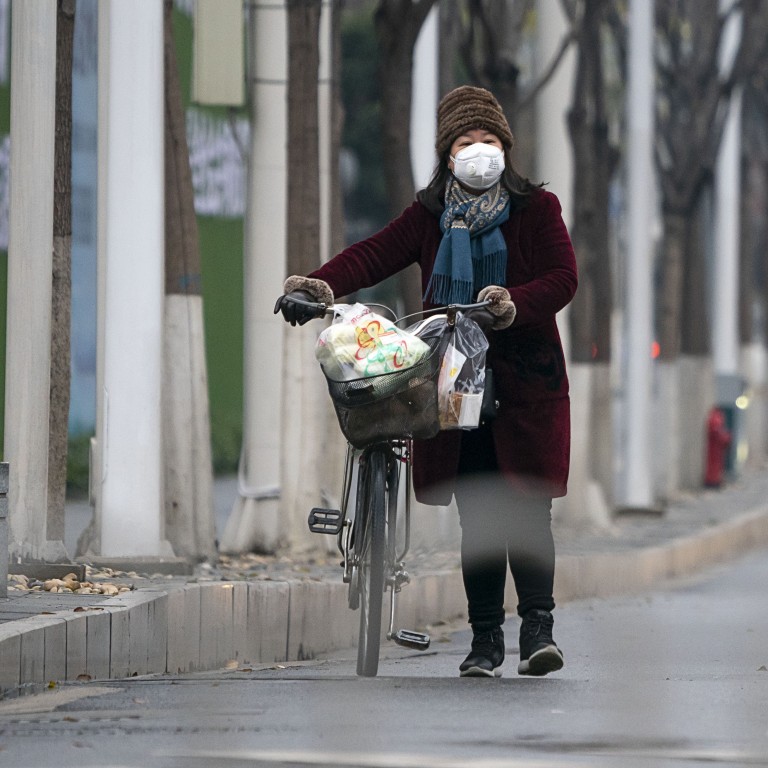
China offers force majeure escape clause for factories that breach supply contracts as coronavirus shutdowns leave assemblies idle
- The agency that promotes China’s foreign trade issued a force majeure certificate to the Zhejiang-based manufacturer in a bid to forestall any contractual claims against it
- The rapid spread of the coronavirus has heightened the risk of contractual defaults by the country’s exporters
The Chinese government has come to the rescue of a car parts supplier facing potential legal action for failing to fulfil an overseas order because of the coronavirus crisis, as the rapid spread of the disease heightens the risk of contractual defaults by the country’s exporters.
The unnamed manufacturer, based in the eastern province of Zhejiang, faces the risk of being unable to meet its contractual obligations with Peugeot’s African plant because of the outbreak and could face claims for damages of up to 30 million yuan (US$4.27 million). All companies in Zhejiang have been ordered to halt operations until at least February 10 as the authorities wrestle to contain the novel virus.
The agency that promotes China’s foreign trade and investment issued a force majeure certificate to the Zhejiang-based manufacturer in a bid to forestall any contractual claims against it. The certificate, the first to be issued in the wake of the current health crisis, effectively exonerates the company from legal liability by proving it was the victim of events beyond its control.
The move is the latest by Beijing to shield companies from legal liabilities related to the disease, which has now claimed more lives than the Sars (severe acute respiratory syndrome) outbreak of 2003. The virus has taken hold in every province in China, forcing at least 15 cities including the epicentre, Wuhan, to enforce quarantining and travel bans.
Most trade contracts contain a force majeure clause that excuses a party that is not able to perform obligations that have become impossible or impractical because of an event that the parties could not have anticipated or controlled. These often include natural disasters, or wars.
The China Council for the Promotion of International Trade states that its force majeure certificates are accepted by governments, customs, trade associations and enterprises in more than 200 countries.
“If [the Zhejiang-based manufacturer] cannot readily produce legal proof of the reason it could not deliver on the contract, the company would not only suffer a 2.4 million yuan loss directly from this contract, it could also face a potential claim of about 30 million yuan from its trading counterparty due to the production suspension that the company would have caused to the latter,” the council said in a statement posted on the Weixin social media platform.
The council said it has received over 1,000 enquiries from companies in relation to the applications.
Market participants have been nervous about the impact of the coronavirus on Apple’s global supply chain. The technology giant has its iPhones assembled in China, primarily by Foxconn Technology Group, the world’s largest contract electronics maker, at its production base in Zhengzhou.
The trade council, which is chaired by the former vice minister of commerce, Gao Yan, is the issuing entity for certificates of origin in China. A non-government organisation, it also handles arbitration in disputes stemming from China’s international and maritime trade, according to a description on the Ministry of Commerce’s website.
It stated on its website last Friday that exporters affected by the Wuhan virus could apply for a force majeure certificate. The certificate is intended to help firms “deal with disputes with foreign trading partners arising from the epidemic control measures”.
It said businesses which could not fulfil their contractual obligations in international trade as a result of their production or logistics being seriously affected by the epidemic could apply.
Four in 10 Hong Kong hotel staff may lose jobs amid coronavirus, protests
The latest measure comes after the People’s Bank of China injected 1.2 trillion yuan of liquidity into the banking system on Sunday to help sustain financial market stability amid the virus. The central bank had already asked Chinese commercial banks to impose more lenient loan terms to their corporate borrowers affected by the coronavirus.
Jolyon Ellwood-Russell, a partner at Simmons & Simmons, said a force majeure clause does not protect exporters from all their obligations. For example, the impediment has to be unforeseeable and truly exceptional. It cannot just be economic hardship caused by the impediment.
“If there is an ongoing delay to delivery, and that delay results in a failure to perform that constitutes a fundamental break, then the parties might be able to avoid the contract. But if it is merely a delay – for example, they have made the goods but just not been able to deliver – then there are certain trade rules that allow the buyer to fix an additional period, but if the export fails in the new period then the exporter might still be liable for damages,” he said.

